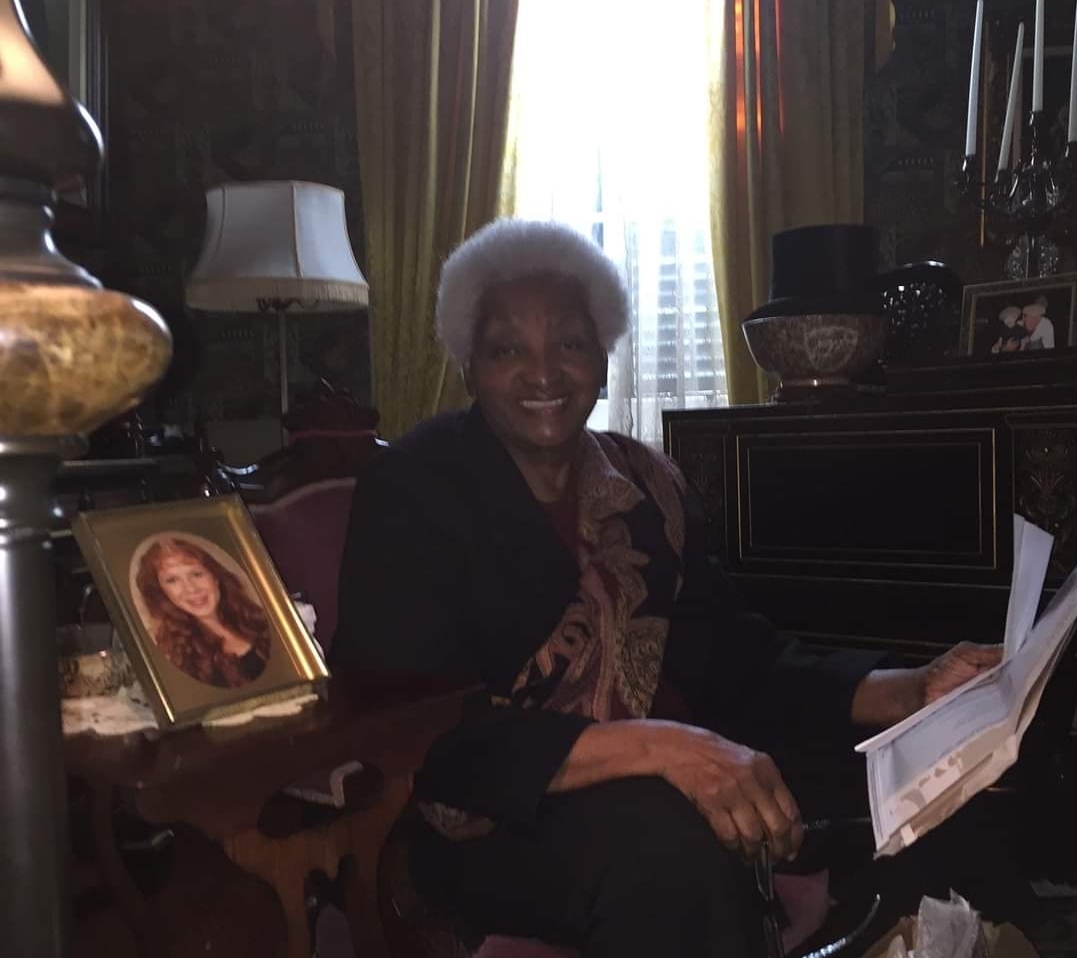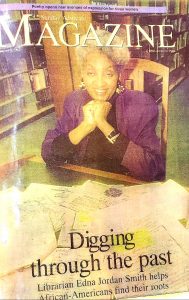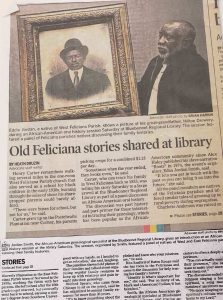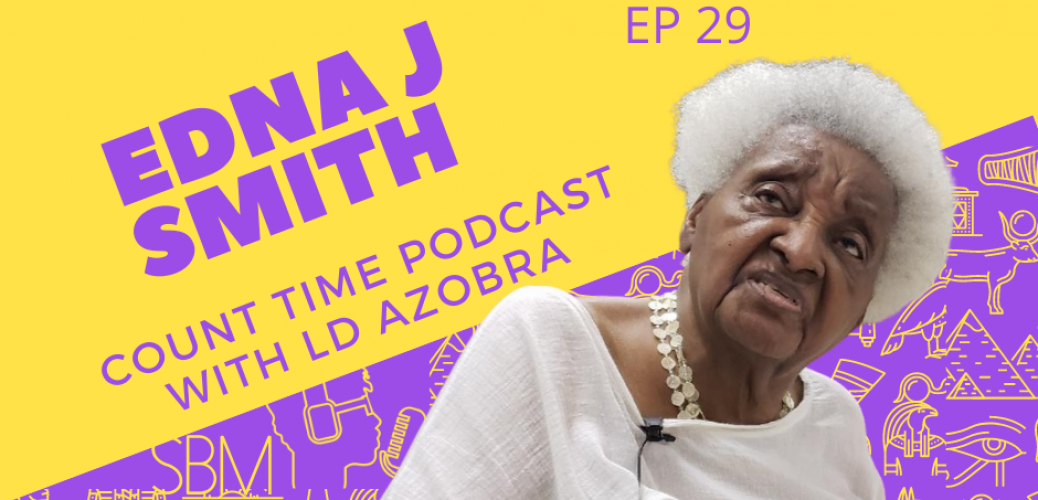Interview with Edna Jordan Smith
The most fascinating discussion with a librarian that you have ever heard. LD interviews 86 year old Edna Jordan Smith. Other Count Time episodes ask the questions: is the queen a white supremacists, Juneteenth and race, Afro-Louisiana history and how to prevent gun violence.
Living Legend
A true Living Legend she has advanced the practice of genealogy and has stories to tell. From Haiti to the Court of France to Marksville and 12 Years a Slave, Edna Jordan Smith has observed, created and describes Louisiana history.

Selected quotes and notes from Count Time Podcast with LD Azobra Interview of Living Legend Edna Jordan Smith
LD:
I like to first introduce to you, one of our local community, true legends in our community have done tremendous, great things. I’ve been knowing her for quite some time. She don’t quite remember me from back in the day. She used to call me Limus nowadays she don’t quite remember, but I don’t know why I didn’t leave a lasting impression upon her. But this young lady named Ms. Edna, Jordan Smith, one of the local, and one of the few, I think she’s created or started genealogy in this community at the Bluebonnet library years ago, when I was doing my little research, everybody sent me straight to Ms. Edna, Jordan Smith, to help me meet my genealogy. Thank you so much because of you. I was able to find a lot of information about my history, my family, and my own culture and where we came from. So I’d like to welcome you here today with our Count Time podcast.

EJS:
Well, I’m so happy that you invited me. It gets me to thinking about so much. You have to tell me to shut up some times because I get into things. And then I think of something else and I can never complete a story because
LD:
It was never even there. That’s the way life is every story is connected to another story. And that’s why I wanted you here because I wanted you to continue talking. and give as much information as you can, we want to capture as much as we can, but one time, not just new Orleans, but the Feliciano was the gateway into Louisiana, basically

EJS:
Well through slavery. And, uh, of course it developed when you get into places like new Orleans and the, um, the river parishes like St. James St. Charles St. James St. John and Ascension. All of that is brought in following the, the Haitian revolution,
LD:
Haitian revolution.
EJS:
And of course he did like so many of us do today. When the French wanted to talk to him, they weren’t getting any way in the battles. So they wanted to talk to him. He made the mistake to talk, and that’s where they had it in the France, put him in prison. And that’s where he froze.

